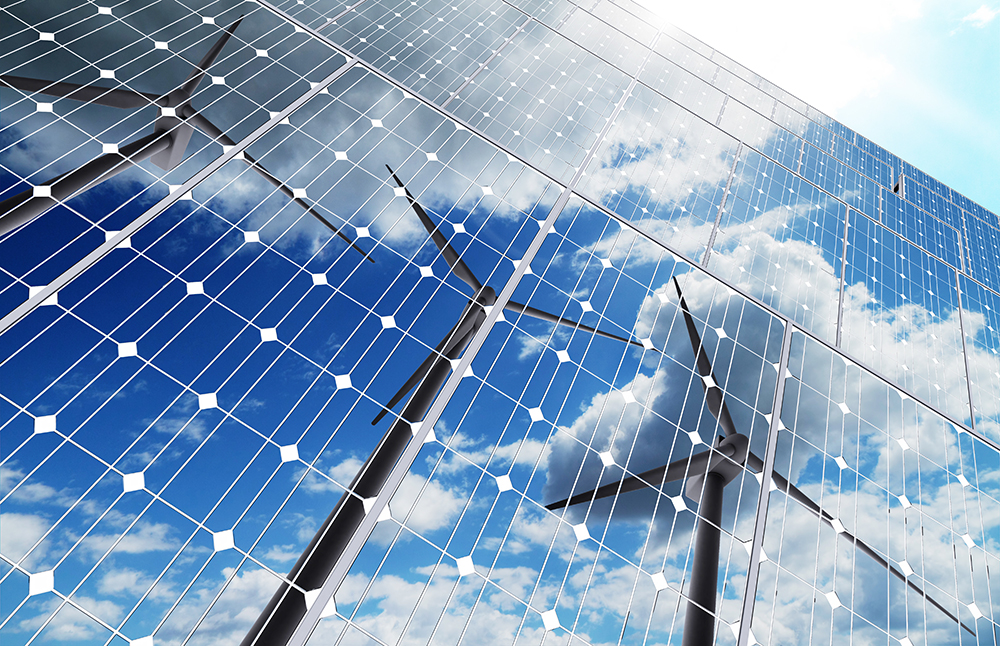Only 10 years ago, more than half of Morocco’s electricity supply was provided by coal. However, as forecasts indicate that energy requirements in the North African country will constantly rise until 2050, a new law was passed encouraging citizens to look for ways to diversify the energy supply, including more renewable resources. Now, Morocco is competing to be the renewable energy leader in Africa.
In order to meet increasing energy demand while fighting climate change, Masen, the Moroccan Agency for Solar Energy, is leading the way in the country’s renewable energy sector. It is pursuing the Kingdom’s goal of achieving 52% of its energy mix from renewable sources by 2030 and has developed a unique model based on five components – producing electricity from renewable sources, applied and pre-operational R&D backed by industrial projects, training, industrial integration and local development.
As well as producing electricity and raising the necessary funds for its projects, Masen is also aiming to mobilise a competitive economic fabric that efficiently harnesses existing skills and helps create new ones. Masen nurtures and encourages the development of applied and pre-operational R&D backed by industrial projects and the promotion of technological innovation. At the heart of Masen’s integrated approach, this incentive to innovate is epitomised by the development of a 200-hectare on site platform at the Noor Ouarzazate solar complex. The common thread running through this integrated approach is the local development strategy Masen implements, which helps the regions hosting the projects to achieve equality and sustainable growth.
Internationally, Masen is aiming to be the preferred partner for any country wishing to make renewable energy a priority for its socioeconomic development and has already signed several partnership agreements with African countries for the development of renewable energies.
Akinwumi Adesina, President of the African Development Bank Group and Masen President Mustapha Bakkoury have also signed a letter of intent marking a new cooperation initiative as part of the ‘Desert to Power’ programme.
The goal is to support African countries, especially those in the Sahel region targeted by the ‘Desert to Power’ initiative, to develop renewable energy technologies adapted to their natural environments and specific energy needs.
The African Development Bank Group began operations in Morocco in 1970. From its first financial disbursement in 1978, to the Kingdom’s water and sanitation sector, the Bank as of September 2017, has an active portfolio of 31 programmes and projects valued at nearly US$2.8 billion.
Nestled on the steep slopes of the northernmost part of Morocco facing Spain, is the Melloussa interconnection station, which provides 15% of Morocco’s electricity production.
The plant, located close to Tangier, connects to Spain, through a 27km undersea cable, has transformed the country’s national power supply.
The station was one of the first to link the north African nation to Europe and Northwest Africa. Melloussa’ s first power interconnection became operational in 1997 via a link, reinforced with new cables in 2006, doubling transmission capacity from 700 to 1,400 megawatts. A third 700-megawatt line has further enhanced the frequency and voltage stability of the Moroccan electrical grid.
A pioneer in undersea connections between two continents, Morocco also leads the way in power connectivity within the North Africa region. Moroccan, Algerian and Tunisian networks were interconnected in 1988. In June 2010, Morocco, Tunisia and Algeria adopted an action plan for 2010 to 2015, underscoring their intention to create an electricity market in North-West Africa with the objective of integration the European market.
A third link, which became operational in 2010 between Algeria and Morocco, has enabled the Kingdom to benefit from an additional interconnection of 400 kilovolts and underlined Morocco’s resolve to pursue a green energy agenda with low fossil fuel emissions.
The previous year, the Bank approved a loan of €109.82 million tc (ONE) for the development of the electricity transmission and distribution network. The goal of the project, co-financed by the French Agency for Development, the European Investment Bank and the World Bank, was to optimise the quality of services provided to all of ONE’s domestic and industrial customers and distribution authorities.
In addition, it was to improve and secure the electricity supply and the reliability of the network through increasing the transmission capacity of the lines. This project will also facilitate overall completion of the Global Rural Electrification Programme (PERG).
The rapid growth in demand for electricity in Morocco and the expansion of the networks to serve the entire country led to the saturation of the electricity transmission grid, causing voltage drops, but this is now a thing of the past, thanks to the installations.
The reduction in energy losses between production sites and the distribution network is an additional benefit that will also help prevent 180,000 tonnes of CO2 emissions per year.
The Bank’s financing of this project forms part of its continuing operations to support the Moroccan energy sector.
Masen’s expertise in renewable energy will be combined with the operational experience of the African Development Bank to strengthen regional integration, focusing on the transfer of technology, capacity building, technical assistance and project development in renewable energies and resource mobilisation.
“Morocco is a reference in terms of renewable energy,” said Adesina.
“When I visited the Noor Ouarzazate complex, in which the Bank has invested considerably, I was fascinated to learn that it had been built using Moroccan know-how. It is proof that Africa can achieve great things and perform to international standards.
“That is why we have asked Morocco to support us in the ‘Desert to Power’ initiative that we are developing in the Sahel. This is a strategic partnership that combines leadership and technical expertise. Together, we shall scale up efforts to power Africa.”
Bakkoury added: “Sharing the experience that Masen has developed and launching a drive for the competitive development of renewable energy across Africa is commensurate with the goal of making renewable energy a real lever for inclusive growth. This partnership with the African Development Bank will contribute to the realisation of that ambition.”



